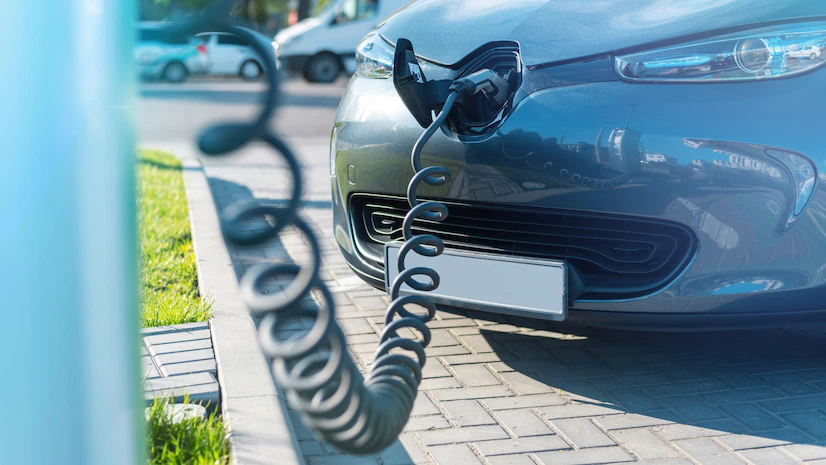In 2023, the automotive landscape is a battlefield of innovation, with electric vehicles (EVs), hybrids, and traditional gas cars competing for supremacy. Did you know that global EV sales surged by over 60% in the first half of 2023, according to Bloomberg Green? As the world leans towards sustainability, understanding the differences and future potential of these vehicle types is crucial for consumers and industry players alike. In this article, we’ll dive into the latest trends, compare these vehicles, and explore what the future holds.
The Rise of Electric Vehicles in 2023
EV Sales and Market Penetration
Electric vehicles are no longer the future—they are the present. By August 2023, EVs accounted for 14% of all new car sales worldwide, as reported by InsideEVs. Brands like Tesla and BYD are leading the charge, with Tesla’s Model Y and Model 3 consistently topping sales charts. What’s driving this surge?
- Government Incentives: Many countries offer tax breaks and subsidies for EV purchases.
- Improved Infrastructure: Charging stations are becoming more ubiquitous, with Europe and China leading the way.
- Technological Advancements: Battery technology improvements have reduced range anxiety significantly.
Battery Technology: The Heart of EVs
Battery advancements are pivotal. According to Battery University, the energy density of lithium-ion batteries has improved by 5–8% annually. This means longer ranges and faster charging times. Moreover, solid-state batteries, which promise even more efficiency, are on the horizon, with companies like Toyota aiming for commercial production by 2025.
Hybrids: The Bridge Between Old and New
Why Hybrids Still Matter
While full EVs are gaining ground, hybrids remain popular due to their blend of efficiency and familiarity. In 2023, hybrids like the Toyota Prius and Honda CR-V Hybrid continue to attract buyers who are not ready to fully commit to electric power.
- Flexibility: Hybrids offer the ability to switch between electric and gas power, providing a safety net for longer journeys.
- Fuel Efficiency: Many hybrids boast impressive fuel economy, often exceeding 50 miles per gallon.
- Lower Emissions: Compared to gas-only vehicles, hybrids produce fewer emissions, making them an eco-friendlier choice.
Market Performance and Trends
According to Autocar, hybrids accounted for about 7% of global car sales in 2023. As automakers like Ford and Hyundai invest in hybrid technology, expect to see more models with enhanced features and better performance.
Gas Cars: Still Relevant?
The Decline of Gasoline Vehicles
Gas cars are not disappearing overnight, but their market share is dwindling. Reuters Mobility reports a 10% decline in gas car sales in 2023 compared to the previous year. Key factors include:
- Environmental Concerns: Increasing awareness about climate change is steering consumers away from fossil fuels.
- Regulatory Pressure: Many governments are setting deadlines to phase out gasoline vehicles, with the EU planning a ban by 2035.
Why Some Still Choose Gas
Despite the decline, gas cars have their advantages:
- Initial Cost: Generally, gas cars are cheaper upfront compared to EVs or hybrids.
- Infrastructure: Gas stations are more widespread than charging points, especially in rural areas.
- Familiarity: Many drivers are more comfortable with traditional technology.
Practical Considerations: Making the Right Choice
EVs: Are They Right for You?
- Charging Needs: Consider your proximity to charging stations and whether you can install a home charger.
- Driving Habits: EVs are ideal for city dwellers with predictable daily routes.
- Budget: Factor in potential savings from incentives and lower running costs.
Hybrids: The Middle Ground
- Versatility: Perfect for those who want to reduce emissions but aren’t ready for full electrification.
- Cost: Generally cheaper than EVs but more expensive than gas cars. Balance the initial cost with long-term savings on fuel.
Gas Cars: When They Make Sense
- Long-Distance Travel: If you frequently drive long distances in areas with limited charging infrastructure, gas cars offer convenience.
- Affordability: With lower upfront costs, they can be a more accessible option for budget-conscious buyers.
Conclusion: Navigating the Future of Mobility
In 2023, the choice between EVs, hybrids, and gas cars depends on individual needs, environmental concerns, and technological advancements. As EV technology continues to evolve and infrastructure improves, we can expect a shift towards electrification. However, hybrids and gas cars still have their place in the market, catering to diverse consumer preferences.
What’s your take on the future of transportation? Will you be an early adopter of EVs, or do you prefer the familiarity of hybrids and gas cars? Share your thoughts and join the conversation as we navigate this exciting era of automotive evolution. With solid-state batteries and autonomous driving on the horizon, the journey ahead promises to be as electrifying as the vehicles leading the charge.

